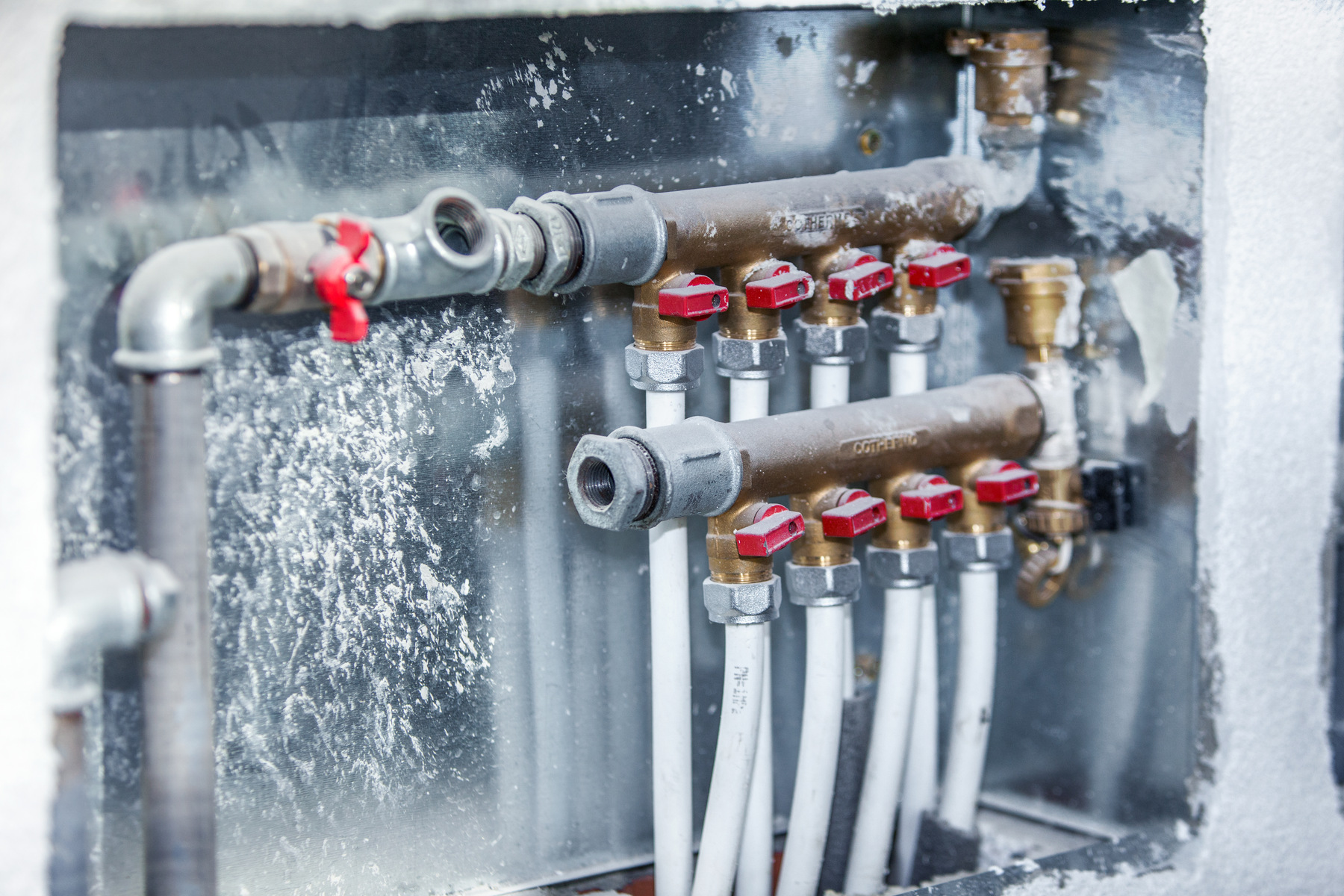As winter continues to bring colder days here in the Fraser Valley, a common problem homeowners face this time of year is frozen pipes. Frozen pipes can be detrimental to the plumbing system in your home, causing damage to the pipes themselves and even to your home from leaks, which can lead to water damage. In this post, we will explore how to keep your pipes from freezing this winter.
Tips to Prevent Pipes from Freezing
Insulate Your Pipes
One of the most effective ways to protect your pipes from freezing is to insulate them. Foam pipe insulation, heat tape, or pipe sleeves can be wrapped around vulnerable pipes in unheated areas like basements, attics, and crawl spaces. Insulation helps keep the temperature around the pipes above freezing, even during the coldest days.
Keep Your Home Warm
Maintaining a consistent temperature inside your home is key to preventing your pipes from freezing. During winter, try to keep your thermostat set to at least 55°F (13°C) during the day and night, even if you’re not at home. If you plan to be away for an extended period, consider leaving the heat on at a low setting to ensure your pipes stay warm.
Let Faucets Drip
If you expect particularly cold weather, it can be helpful to let a faucet drip slightly. Running water, even at a trickle, helps prevent the water inside the pipes from freezing. This is especially useful for pipes located in colder areas of the home or near exterior walls. The slight flow of water reduces the chance of freezing, helping to keep the water moving through the system.
Open Cabinet Doors
For pipes that are located under sinks, such as in the kitchen and bathroom, open the cabinet doors to allow warm air to circulate around the pipes. This is especially important if your sinks are located against exterior walls. By allowing warmer air to reach the pipes, you reduce the chances of them freezing.
Seal Gaps and Cracks
Inspect your home for any gaps or cracks in walls, windows, and doors. Cold air can seep into these spaces and lower the temperature around your pipes. Use caulk or weather stripping to seal up any openings, particularly around areas where pipes enter the house from outside, such as in crawl spaces, basements, and attics.
Keep Garage Doors Closed
If you have water supply lines running through your garage, make sure to keep the garage door closed during extremely cold weather. Even if your garage isn’t heated, keeping the door closed can help trap warmth inside, reducing the chances of pipes freezing.
Use Space Heaters
If you have pipes in areas like basements, crawl spaces, or garages that are particularly susceptible to the cold, you can use a space heater to provide localized warmth. However, use heaters with caution, ensuring they’re safe and monitored to prevent fire hazards.
Install a Smart Thermostat
A smart thermostat allows you to monitor and control the temperature of your home remotely. This can be especially helpful if you’re away on vacation or working long hours. You can adjust the temperature to ensure your home remains warm enough to protect your pipes, even when you’re not there to adjust the thermostat manually.
How Deus Plumbing & Heating Can Help
At Deus Plumbing & Heating, we have encountered and fixed countless frozen pipes throughout the Fraser Valley. It’s a common problem that troubles many homeowners during the colder months. By implementing simple preventative measures, such as keeping your garage door closed, maintaining a warm temperature inside your home, and sealing holes and gaps in doorways and windows, you can help prevent your pipes from freezing this winter.If you have any further questions regarding your plumbing system and how it will perform this winter, or if you suspect you have a frozen pipe in your home, contact us today for a free consultation.

